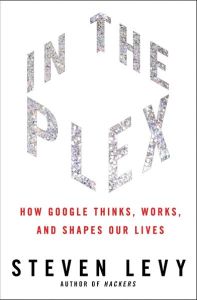Join getAbstract to access the summary!

Join getAbstract to access the summary!
Steven Levy
In the Plex
How Google Thinks, Works, and Shapes Our Lives
Simon & Schuster, 2011
What's inside?
Captivating, detailed history of Google from the inside out.
Recommendation
Journalist Steven Levy’s previous books about Macintosh computers and about hackers make him the perfect insider-outsider, with the knowledge to write a detailed history of famously private Google. Granted unprecedented access, Levy appears to have insightfully interviewed everyone about every moment of Google’s history to present this canonical version of the company’s saga. Levy seems a little too close to his subject, so perhaps his book is not a warts-and-all chronicle, but most of the stories are fascinating, and it is all well reported. getAbstract recommends this heavily anecdotal history to readers who are launching a start-up, intrigued by computers and cultural history, or interested in a nice, detailed dose of the truth behind all those Google rumors.
Summary
About the Author
Steven Levy is the author of The Perfect Thing: How the iPod Shuffles Commerce, Culture, and Coolness; Insanely Great: The Life and Times of Macintosh, the Computer That Changed Everything; and Hackers: Heroes of the Computer Revolution.




















Comment on this summary